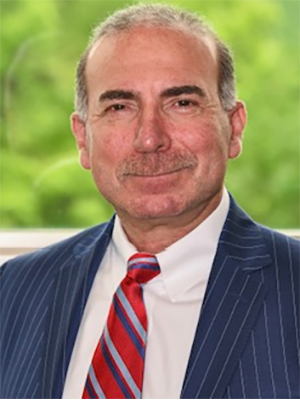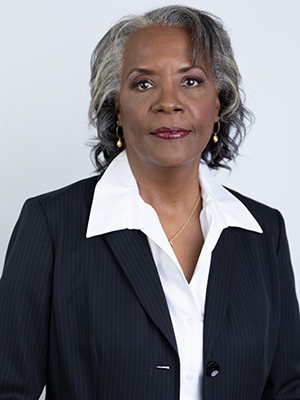Page Content
 Office of the Chancellor
Office of the Chancellor
Vice Chancellor for Strategic Initiatives
Dr. Bashar W. Hanna
Contact
Before joining the Chancellor’s Executive Team, Dr. Hanna served as Founding President
of Commonwealth University of Pennsylvania, which was created in July 2022 through
the integration of Bloomsburg, Lock Haven and Mansfield Universities. Prior to this
role, he was president of Bloomsburg University and Interim President of Lock Haven
and Mansfield Universities.
During his tenure as President of Bloomsburg the university’s endowment grew by 100%
from $44M upon his arrival in 2017 to $88M. He reduced cost of attendance for Pennsylvania
students by 11%, which was the lowest of all PASSHE universities. Student success
was a hallmark of Dr. Hanna’s presidency, both student retention and graduation rates
improved significantly. Most notably was a 50% performance gap closure between majority
and under-represented minority students.
Prior to joining Bloomsburg, Dr. Hanna held several higher education leadership positions
including: Vice President for Academic Affairs and Professor of Biology at Delaware
Valley University; Associate Provost at Ithaca College; Dean of Liberal Arts and Sciences
and Interim Provost at Kutztown University of Pennsylvania; Associate Dean of the
College of Science and Technology and Assistant Vice Provost for Research and Sponsored
programs at Temple University, his alma mater, where he started his career as a National
Science Foundation Teaching Fellow.
In 1977, at the age of ten Bashar and his family immigrated to the United States from
Syria. As an immigrant, who spoke no English in fifth and the first in his family
to earn a college degree, his career is guided by his unique journey and an unwavering
commitment to student success and the belief that a college degree continues to be
a vehicle for upward social and economic mobility.
Bashar earned his bachelor, master and Doctoral degrees in Neurobiology from Temple
University.
Why did you pursue a career in higher education?
As a trained Developmental Neurobiologist, my initial career aspirations were to pursue
a research career exploring human visual pathways and better understand the signaling
between the human eye and brain. Then, one fall semester, I taught my first course
– Introductory Biology – and I caught the “teaching bug”.
What first sparked your interest in developmental neurobiology?
During my first year in college, my sixteen-year-old sister was shockingly diagnosed
with an aggressive malignant cancerous tumor, an olfactory neuro-blastoma. The cancer
forced the removal of her right eye. Her long journey fighting cancer triggered me
to want to learn everything about her type of cancer.
Years of work in higher education later, what keeps you motivated?
The best part of every position I have been privileged to serve – Instructor, associate
dean, dean, associate provost, professor, provost, president and vice chancellor -
is the students whose life are transformed by what we do.
What are your top priorities as VICE chancellor?
Continue to make public higher education affordable for all students, especially student
populations who are frequently marginalized – first generation college students (like
me), underrepresented students and PELL eligible students
What are you passionate about outside of work?
Family! My parents, may they rest in peace, were courageous beyond words. They left
our homeland and moved us to the United States in 1977, I was 10-years old at the
time. I am one of seven children; my six siblings are all women. Each of them has
taught more about life than any textbook. Deanna and I have been married for 28-years.
We met as undergraduates at Temple University. We raised two extraordinary children
together. My wife and children are my most noteworthy accomplishments in life.
 Office of Diversity, Equity and Inclusion
Office of Diversity, Equity and Inclusion
Dr. Denise Pearson
Vice Chancellor, Chief Diversity, Equity, and Inclusion Officer
Dr. Denise Pearson joined the State System in August 2020 with three decades of experience
in the classroom and as campus leader, including having served as assistant provost
of faculty affairs and then interim dean/senior associate dean of the School of Education
and Human Performance at Winston-Salem State University and associate academic dean
at the University of Denver. She previously served as vice president for academic
affairs and equity initiatives at the State Higher Education Executive Officers Association
(SHEEO).
Dr. Pearson earned her Ph.D. in administration and supervision of education from Marquette
University and master's degrees in conflict resolution from the University of Denver
and educational administration from Concordia University. Her undergraduate studies
were at the State University of New York at Delhi and Pace University.
Here is a list of readings that were useful over the many months I collaborated with campus leaders to develop
the systemwide Diversity, Equity, and Inclusion Strategic Priorities affirmed by the
Board of Governors.
Why did you pursue a career in higher education?
I was pursuing a career in human resources management in New York during my early
years as a mother in the early 1980s. When my family relocated to Wisconsin in the
late 1980s, I accepted an opportunity to teach courses at a local college, in a certificate
program for adult learners (I only had an undergraduate degree in Human Services at
the time). It wasn't long before I was able to see the impact I could have on students
and higher education in general and I never resumed plans to become a HR executive.
I went on and completed my M.S., M.A., and Ph.D. degrees in Education, Conflict Resolution,
and Education Administration & Supervision with an emphasis in higher education.
During my career, I have worked at diverse institutional types – including public,
private, community college, HBCU, urban, suburban, and faith-based, and taught undergraduate
and graduate courses in the fields of education, communication, and conflict resolution.
Some of my most rewarding professional experiences have happened in the classroom
(including online), especially those when I can help students develop their sense
of belonging and contribution to the learning environment. I couldn't imagine a better
career choice.
What first sparked your interest in educational equity and policy?
The complexity of the higher education ecosystem, in addition to the clear connection
between policy and practice, piqued my interest in educational equity and policy.
During my tenure at Winston-Salem State University (one of the University of North
Carolina's 16 institutions) I had the opportunity to observe how policy enables practice
as well as how practice informs policy – ideally in ways that have positive impacts
on student outcomes. When I joined State Higher Education Executive Officers in 2016,
I recognized that such synergy could not be assumed and that strategic intentionality
was required. Joining SHEEO also gave me unique opportunities to explore and advocate
for stronger collaborations between policy makers and institutions of higher education,
especially around critical policy areas such as teacher preparation, dual enrollment,
and postsecondary education for incarcerated populations. Acquiring the knowledge
and skills necessary to apply an equity lens to policy and practice discussions has
increased my effectiveness to advocate for groups historically excluded from American
higher education. I value the effort required for intentional and meaningful deliberations
that place equity at the center.
Years of work in higher education later, what keeps you motivated?
I stay motivated because of my unwavering belief in the power of education. The zip
code where someone is born should not be the deciding factor on the educational opportunities
they are afforded or the heights they can reach in life. I believe in the power of
education to improve the human condition, support economic development, increase community
and civic engagement, transform lives of incarcerated populations, and disrupt generational
poverty. State systems of higher education are uniquely positioned to collaborate
with a diversity of stakeholders in search of scalable and sustainable solutions to
so many societal problems. I am eager to serve as Vice Chancellor and Chief DE&I Officer
in search of solutions to persistent challenges to educational equity. A career in
higher education is a privilege that carries tremendous responsibility, which I do
not take lightly. Albeit serious, that does not mean the work can't be fun too.
What are your priorities for the first few months of your new job?
My immediate priorities include visiting each campus and meeting leadership, faculty,
staff, and students. These visits will be part of my plan to learn about how diversity,
equity, and inclusion is positioned on each campus and how we can partner to create
and advance a shared DE&I agenda. Essentially, I want to learn how I can support
campus leadership in their efforts to foster environments that allow students, faculty,
and staff to thrive. The first few months will focus on learning to inform planning.
What are you passionate about outside of work?
I am passionate about my health. I made the decision more than a decade ago to consume
a plant-based diet and am always looking for ways to expand my knowledge and practice
of veganism (although I haven't given up my leather shoes or purses yet). My favorite
vegan cuisines are Afro-Cuban, Indian, and Mediterranean. I have three lovely sons
who bring me great joy. I also have a 2 ½ year old granddaughter. Family time is
precious especially since all my children live in Colorado, and I always look forward
to the times we get together. Reading is a way for me to escape and expand my mind.
I enjoy reading (Audible included) about a wide range of topics – education, public
policy, the environment, culture, health, and even a good love story.
 Office of the Chancellor
Office of the Chancellor Office of Diversity, Equity and Inclusion
Office of Diversity, Equity and Inclusion